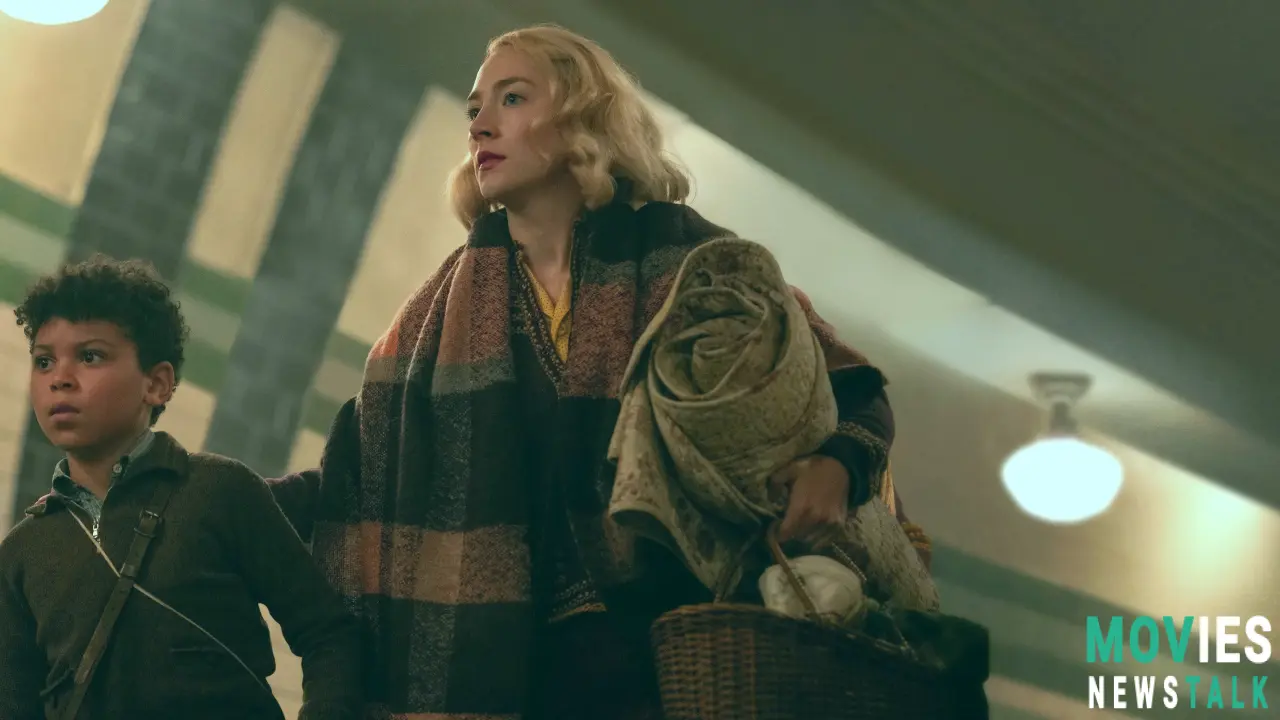Blitz : A Visually Stunning War Drama That Misses the Mark emotion ally
Steve McQueen's Blitz: A Technically Impressive Film That Lacks Emotional Depth
Director Steve McQueen is known for his powerful historical dramas exploring family struggles, as seen in his masterpiece 12 Years a Slave. His latest film, Blitz, attempts to do the same—but falls short. This film follows young George (Elliott Heffernan), sent away from war-torn London (1940) during the Nazi bombing blitz; to the countryside for his own safety. He unexpectedly decides to return to his mother, Rita (Saoirse Ronan) and grandfather. This begins that heart-wrenching journey—and what should be a powerful film exploring survival and family amidst a horrific period– becomes oddly emotionally detached.
the movie visually captures the grim realities. There are shocking visuals emphasizing that horror (close-ups of German bombs), yet there's never a single bombing depicted on screen! This choice creates a weird dynamic, and it’s the exact thing that prevents audiences from getting immersed.
A Well-Made Film That Fails to Evoke Emotion
Blitz has moments that sparkle: Those depictions emphasizing social inequalities – like racial tensions, economic hardship, and those class struggles during that era really did touch on important historical realities. Yet McQueen’s narrative touches upon them but only superficially before shifting to the next encounter. It is obvious this story needs deeper examination— viewers want a connection to these experiences; more importantly, they desire a sense of the impact these moments actually had on that young boy, who travels the city but remains distant even from his audience, the viewers who witness this, seemingly due to a reluctance or decision to remain overly emotionally detached from all his surroundings.
The movie feels tense at points. It’s sometimes gut-wrenching; yet there is a distinct disconnect which greatly prevents that potential for total emotional immersion from developing for viewers; that expected and needed emotional response never really materializes! That grim backdrop– it fails to capture the needed deep emotional intensity or depth! It lacks the intensity of personal responses expected, thus viewers feel disconnected even after going through his experience alongside the characters involved.
Stellar Performances and Visuals Can't Compensate
Blitz isn’t completely a waste of time. McQueen's capable directing allows the transitions between timelines (before and during the war) to work amazingly well—creating a very impressive level of pacing for such an intense experience which could've easily broken, but maintains this remarkably strong pacing. The visuals alone truly amaze viewers, showing London’s stark contrasts through Yorick Le Saux's incredible cinematography. That cinematography remains superb. It also brings those brilliant details into view; further emphasizing just how much work had gone into those minute parts of the story. Every single aspect and moment conveys immense value; from details of that horrific wartime era, yet that lack of human response remains incredibly hollow; leaving much needed depth lacking.
Some truly amazing stand-out moments involve those few appearances that Benjamin Clementine makes in those particular key appearances. His tender portrayal of Ife—bringing that much-needed hope to counter the bleak despair–shows genuine warmth. And Saoirse Ronan’s performance as Rita shines through too, conveying warmth; showing her love yet there is a limit here; her limited agency makes her portrayal far less impacting than others. The performances themselves don’t create emotional depth – this aspect still remains fundamentally problematic, a deep flaw that only highlights the greater issue throughout this article. And despite Heffernan’s capable effort; those interactions never truly elicit any strong feeling for George, a young boy escaping the chaos; making that character ultimately only serve to narrate rather than create his own truly powerful independent personality that this intense wartime era might have naturally established; this is that same emotional disconnect found elsewhere, thus audiences are simply left with more profound questions that leave more answers open, without really exploring them in full.
Conclusion: A Missed Opportunity for Emotional Resonance
Blitz is a beautifully shot and expertly crafted film , folks. However, that strange, detached portrayal—creating those strange and surprising disconnected moments throughout this intense narrative– really prevents a totally fulfilling and emotional viewing experience! The storytelling chooses visual intensity over emotionally engaging narrative. While those visuals do make it worth seeing—that lingering feeling remains throughout; it ultimately prevents viewers from being connected fully—leaving many with this deep feeling that something’s fundamentally missing! This leaves the viewer wanting—an ending lacking that depth and necessary impact required. This visually impressive film should still be watched. It presents important and very complex points concerning human survival and loss, yet needs revisiting in a very specific manner: focusing primarily on improving how those powerful emotions of loss and survival amidst war-torn locations would really convey and generate these powerful impacts which would help make this amazing visual film into a classic of the genre.

